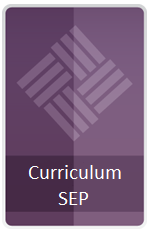Civil Engineering

Program Eduactional Objectives
Execute infrastructure works for urban, industrial, transportation, hydraulic resources and energy developments within a framework of social and environmentally responsibility, a conscious use of available material, technologies and human factor, all in benefit of the community and the country.
Be ready to work as drafter, technical coordinator or project manager in government areas such as Urban Development, Construction, Roads, Highways, Water works, Sewage and Sustainable Development.
Work as project leader or start a company of their own on engineering studies, urban housing, industrial, highways, structures, hydraulic works projects or special construction projects for the private sector.
Work as a professional for the precast, materials, environmental impact assessment companies or architectural engineering firms.
Behave ethically and humanely as socially responsible and environmentally conscious professionals.
Student Outcomes
-
- An ability to apply knowledge of mathematics, science, and engineering
- An ability to design and conduct experiments, as well as to analyze and interpret data
- An ability to design a system, component, or process to meet desired needs within realistic constraints such as economic, environmental, social, political, ethical, health and safety, manufacturability, and sustainability.
- An ability to function on multidisciplinary teams.
- An ability to identify, formulate and solve engineering problems.
- An understanding of professional and ethical responsibility
- An ability to communicate effectively.
- The broad education necessary to understand the impact of engineering solutions in a global, economic, environmental, and societal context.
- Recognition of the need for, and an ability to engage in life-long learning.
- Knowledge of contemporary issues.
- An ability to use the techniques, skills, and modern engineering tools necessary for engineering practice
----------
- An ability to identify, formulate, and solve complex engineering problems by applying principles of engineering, science, and mathematics
- An ability to apply engineering design to produce solutions that meet specified needs with consideration of public health, safety, and welfare, as well as global, cultural, social, environmental, and economic factors
- An ability to communicate effectively with a range of audiences
- An ability to recognize ethical and professional responsibilities in engineering situations and make informed judgments, which must consider the impact of engineering solutions in global, economic, environmental, and societal contexts
- An ability to function effectively on a team whose members together provide leadership, create a collaborative and inclusive environment, establish goals, plan tasks, and meet objectives
- An ability to develop and conduct appropriate experimentation, analyze and interpret data, and use engineering judgment to draw conclusions
- An ability to acquire and apply new knowledge as needed, using appropriate learning strategies
Construction and administration
Structures and geotechnics
Hydraulics and hydrology
Roads and topography

Curricular Model 2025
Curricular Model 2016
Curricular Model 2010
| Program: Civil Engineering | Number of new students |
Number of graduated students |
Number of Actual Students |
| 2019-2020 Period | 30 | 15 | 116 |
| 2018-2019 Period | 28 | 9 | 75 |
| 2017-2018 Period | 27 | 15 | 71 |
| 2016-2017 Period | 25 | 10 | 75 |
| 2015-2016 Period | 23 | 26 | 87 |
| 2014-2015 Period | 34 | 16 | 102 |
| 2013-2014 Period | 34 | 12 | 115 |







